Have you found yourself with some extra time on your hands?
If you’re bored at home, there are countless ways to use your time wisely — whether it’s to learn something new, plan for your future, or do something productive that can create a positive impact on your health.
In this article, you’ll learn about 15 productive things you can do from home the next time you have some downtime, along with how you can most effectively manage those activities.
What can I do at home to be productive?
According to the American Psychology Association (APA), one way you can become more productive is to reduce your interruptions.
Distractions will make you less productive since you have to spend some time refocusing again every time you get disturbed. So make sure that whenever you are doing productive tasks, you’re fully focused and won’t get distracted by other people or notifications on your phone.You should also note that multitasking won’t make you more productive.
According to a cornerstone study, your brain needs to switch between 2 stages when you multitask; goal shifting and rule activation. This switching cost reduces your cognitive ability, which means that you’ll be less productive when multitasking.
You should pick something that you want to do for a block of time, and only do that one thing until the time is up.
Resist the urge to go on social media, look up other things you could do, or spend too much time in your email inbox.
What productive things can I do when I have free time?
Here are 15 productive and fun things you can do to beat the boredom the next time you have some downtime.
1. Develop a new skill
With today’s online resources, learning a new skill is easier than ever.
You can take an online course through learning platforms like Skillshare or Linkedin Learning, look up free resources on Youtube, or sign up for a local class.
When you implement long-term learning for skills that take time to develop, new neural activity patterns are created in your brain, which in turn link to new behavioral activities.
Plus, you could develop a newfound passion.
2. Take a walk
Take a stroll and discover new areas around your neighborhood.
This does so much more than simply get you out of a funk and allow you to breathe some fresh air. According to Harvard, walking can reduce your risk of cardiovascular disease by 31%.
It will also clear your mind and help you be more productive for the next item on your to-do list.
If you have access to areas in nature, consider walking there instead of taking a stroll into town. Try keeping an eye open for wildlife and plants you’ve never really noticed before.
If you don’t have access to any interesting new walking spots, you can use this time to catch up on your favorite podcast.
Are there other types of physical activity you partake in, like biking, swimming, or going to the gym? You can try these as well if taking a walk doesn’t sound appealing.
3. Plan out the next several weeks
You can use your downtime to plan out your schedule for the next several weeks. It’s always better to lay everything out and develop a schedule instead of just keeping everything in your head.
When you plan out the future, you can figure out the steps you need to take to accomplish any goals you might be working on.
For example, if you’re going to be embarking on a major home improvement project, you can block out time to get quotes from contractors, figure out the scope of work, etc.
A plan helps you break down longer projects into bite-sized actionable tasks.
It also ensures that you won’t forget these details, especially if you’re using a scheduling tool that will give you push notifications.
Create milestones and timelines to ensure that you get everything done on time.
You should also make sure to group your tasks in a way that makes sense to you. You’ll find countless guides on organizing projects and tasks, but ultimately, you need to test these out for yourself to see what works best for you.
You can use the Single Project template on monday.com to easily plan and organize your personal life.
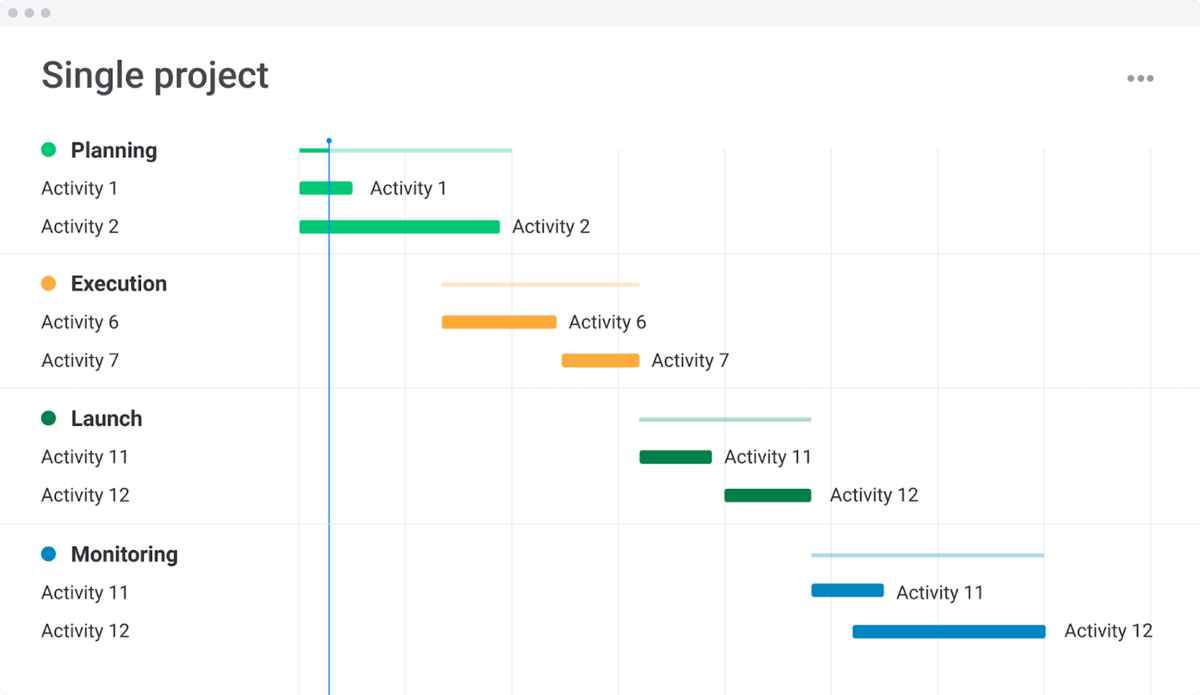
Whether you want to plan out a new morning routine, create a vision board, develop a meal plan, or map out your bucket list, you can break down everything you need to know and keep track of.
With all of your tasks laid out in one place, you’ll be able to manage time more effectively and get more done as a result.
If you prefer to plan things out with the traditional pen and paper, you can start a bullet journal instead.
4. Learn a new language
Learning a new language is an amazing idea because it will allow you to communicate with more people and make travel to foreign places easier.
Choose a language that’s always interested you, or pick one based on places you’d like to travel around the world.
For example, if you’ve always wanted to see Berlin, consider learning German.
Several apps are available to help you learn a new language, including:
- Duolingo
- Babbel
- HelloTalk
- Busuu
Every app uses different methods to teach you a language, so try them out and see which one works best for your learning style.

5. Establish some goals
When was the last time you sat down and set goals for yourself?
Take some of your free time to start setting goals. Determine what it will take to achieve these goals and create a plan of action from what you’ve broken down.
You can map this out on a monday.com board to keep track of everything in one place and give yourself deadlines.
Keep in mind that your goals can be professional or personal. And for this you may want to check out different productivity apps to help.
In addition to creating new goals, you can revisit old goals to see if you’ve met them or not.
If you haven’t, come up with a strategy for how you’ll make that happen.
Alternatively, you can retire the goal if it is no longer relevant to your current life.
6. Do a deep clean
If it hasn’t been done in a while, take out your rags and mops and do some cleaning around your home.
Take advantage of your free time and clean the spots you usually ignore or put off.
You can also take some time to create a daily cleaning checklist so that your deep cleaning doesn’t have to be as difficult the next time around. Try out the daily cleaning checklist on monday.com!
7. Find out more about your family tree
Mapping out your family tree can be a fun activity that will also teach you a ton about your own history.
Online apps like Ancestry.com can help you create your family tree using context hints.
Ask your living family members if they know anything about your family’s history.
Not only will you create something amazing that you can refer to in the future, but you’ll have an opportunity to connect and bond with your relatives over old stories.
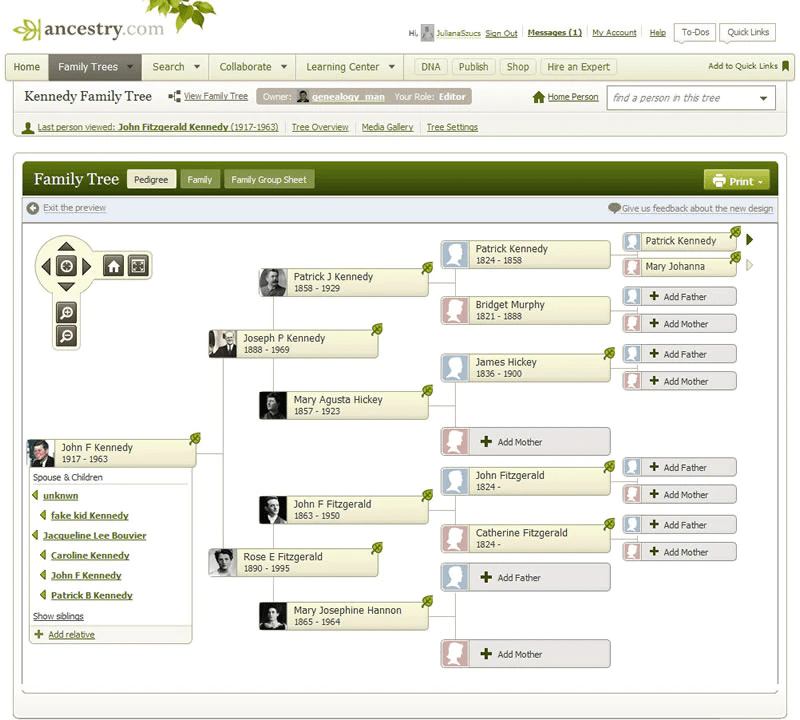
8. Help other people
Put your free time to good use and help other people.
You can volunteer for a local cause that you care about, or you can reach out to your neighbors to see if there are any senior citizens or people with special needs who could use a hand.
Studies show that volunteering can even have health benefits, like decreasing your risk of high blood pressure.
There’s always someone who could use your help. Try it out and see how it makes you feel to make a difference in someone else’s life.
9. Plant a garden
If the weather’s looking good, why not plant a garden?
Not only will you be spending time outdoors, but you’ll be able to harvest the fruits of your labor — literally.
Do some research on what you can plant in your area during the season you want to start gardening.
For instance, if you live in the north of the U.S. or in Canada, you shouldn’t plant produce in April, even if the weather starts warming up. It’s likely to get cold again, and your crops will die.
If you don’t have any space in your home to plant a garden, look in your neighborhood to see if there is a community garden available.
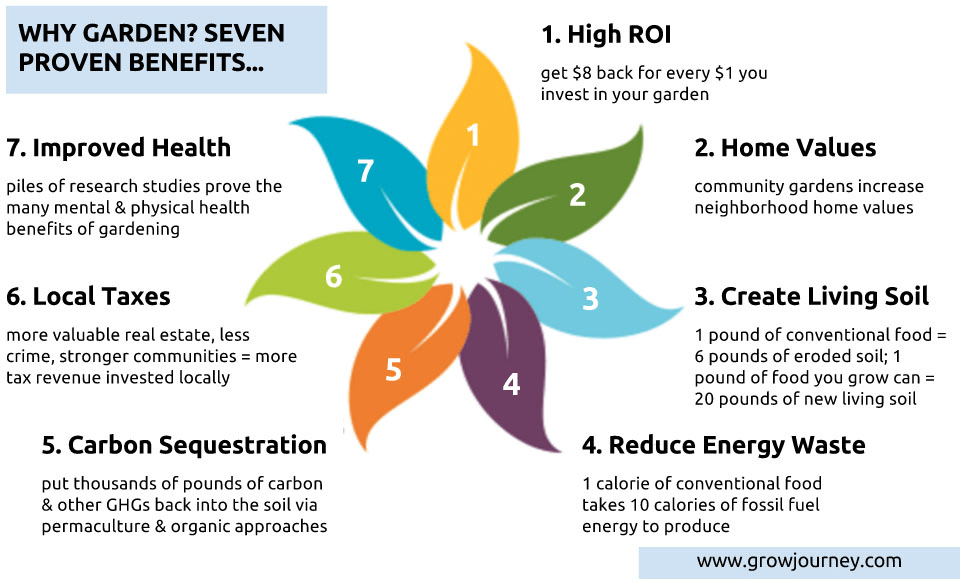
10. Read a new book
Pick up a book you haven’t read yet and expand your horizons.
There are books on countless topics available, so choose anything that piques your interest, whether that’s fiction or nonfiction.
You can even read a book about productivity so that your reading session can contribute to making you even more productive.
You don’t need to spend any money to read something new. Pay a visit to your local library and see where your search takes you.
11. Create or revise a budget
Spend some time revising your budget to see if it’s still relevant to your current lifestyle.
If you don’t have a budget, create one!
A budget helps you determine where your money will go so that you don’t overspend. This can help you save money in the long run.
If you want to keep your budget in the same place you keep your project planner, daily cleaning checklist, and other elements of your life, try out monday.com’s budget tracking template.
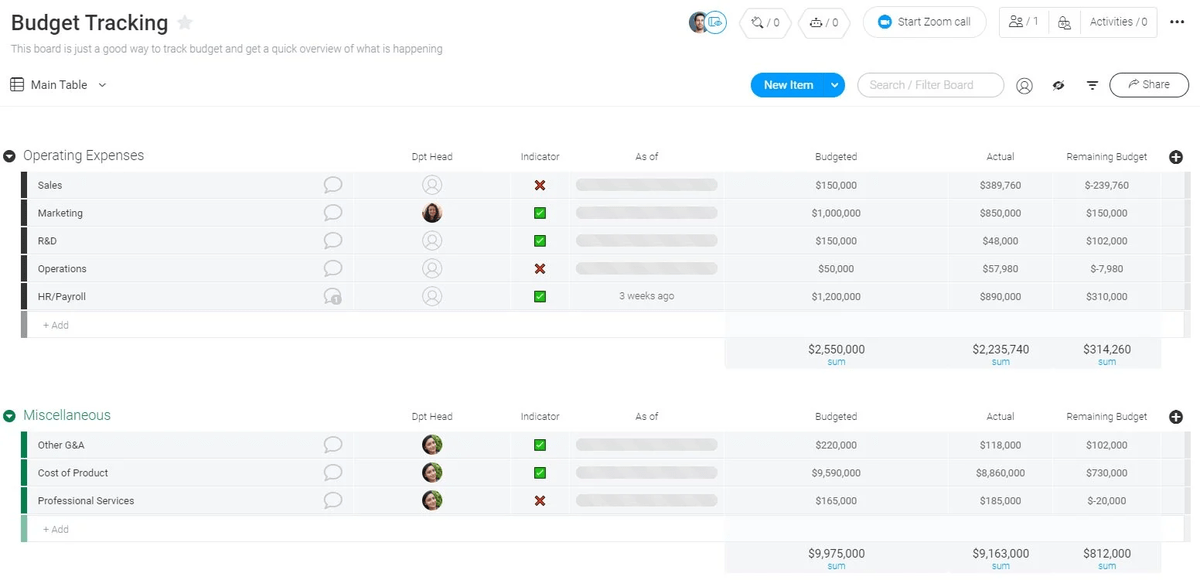
There is so much you can do with your budget. You can track your monthly expenses, add formulas to outsource the math to software, view your budget breakdown, and track your savings progress with a dashboard.
12. Declutter your belongings
If your junk drawer is getting messy or your cupboards are overflowing, it may be time to declutter.
Take everything out of their respective spaces so you can see what you have. Ask yourself when the last time was that you used every item.
When you put everything back, make sure every item has an assigned place. This will help you avoid clutter — or at least delay it — in the future.
Whenever you take something out, remember to put it back in its assigned spot.
13. Plan an amazing vacation
Planning a vacation is a ton of fun, but it’s also a good way to make sure you consider everything.
Even if you don’t have any plans to go on vacation just yet, you can take some free time to dream up what your next vacation could look like.
Use monday.com to plan out vacation ideas, create a list of what to pack, and list other elements you want from your dream vacation.
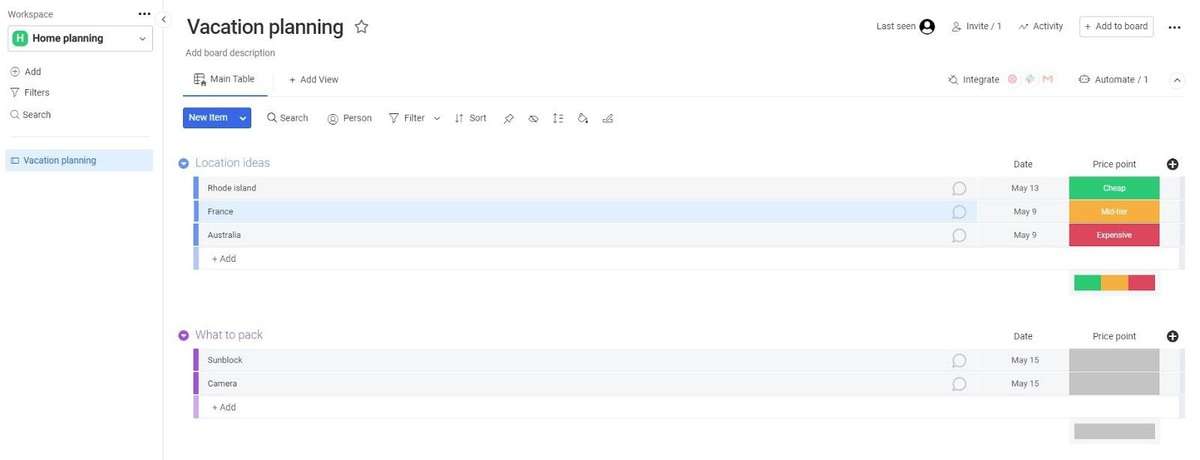
14. Clean up your email account
So much junk accumulates in an email account over time.
Your inbox can get overwhelmed with old emails you’ll never read again, your email subscriptions start piling up, and the important emails get lost in the shuffle.
Take extra time to bring your inbox unread numbers down to zero and unsubscribe from marketing emails you never read.
This will ensure that your inbox doesn’t get cluttered as quickly in the future.
15. Cook up something new
Making a new meal can take some time. So why not take this opportunity to do some cooking?
You need to stock up on the right ingredients, make sure you understand the recipe, and sometimes try out new cooking techniques that are foreign to you.
Discover new flavors and a potential new passion by cooking up something you’ve never tried before. Plus, you can take this opportunity to invite your loved ones over for a taste test.
Become more productive in your free time
There you have it — 15 productive things to do when you find yourself with some free time.
Next time you’re lucky enough to have some downtime, you’ll have plenty of productive ideas to select from.
Did you know that monday.com has a free plan? Try it out now to make your home life more productive!

